Saludos comunidad HIVE. Presento a continuación una breve reseña de un personaje que dejó un legado importante para varias generaciones de todo un pueblo: Ángel Romero “Romerito”, perteneciente a la serie “Patrimonios”. Como siempre, agradezco en mucho, la que se tomen para leer estas cortas notas.
Greetings HIVE community. I present below a brief review of a character who left an important legacy for several generations of an entire people: Angel Romero "Romerito", belonging to the series "Patrimonios". As always, I thank you for taking the time to read these short notes.
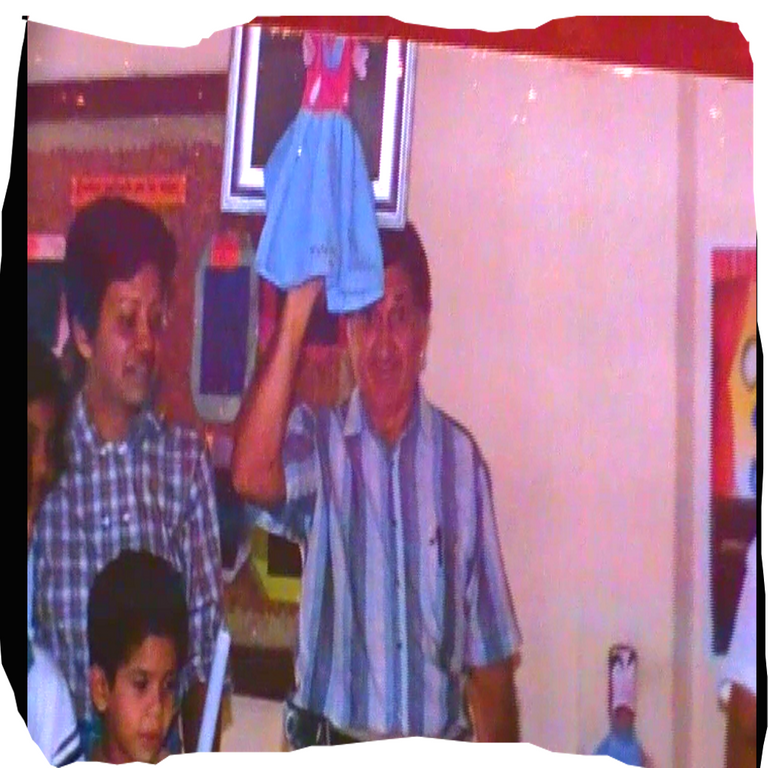
Esta fotografía pertenece a los archivos de la fundación teatro de títeres jau jau | Photograph is from the archives of the teatro de titeres jau jau foundation.
Desde el día que llegué a Upata— los primeros de enero 1976- mi tío, Ángel Romero, se hizo solidario con las expectativas de un joven con muchos sueños, pero sin brújula clara.
Traía una poca experiencia con los títeres y la actuación, así como algunos conocimientos de la cerámica y otras artesanías, pero como dije arriba, las costas estaban lejos y me sentía en medio de un gran mar o lago.
Al momento Romerito— como lo llamaban en estas tierras guayanesas— se abocó diligente y afectuosamente, y pronto estuve compartiendo con algunos docentes un taller de títeres, el cual se había iniciado en la casa de la cultura y abriendo poco tiempo después, mi propio talle de cerámica.
Así era Ángel Romero no solo con su familia, sino con mucha gente: Solidario, desprendido, siempre dispuesto a colaborar y atender a cualquiera de los cultores que necesitara su apoyo.
Como ejemplo doy testimonio del empuje e incentivo que le dio al grupo de títeres Jau Jau: Primero, el grupo nace de un taller gestionado por él, ante la oficina de desarrollo social de la C.V.G. Segundo, una vez constituido el grupo de títeres, organizó y coordinó nuestra primera gira estadal.
Sin embargo-reitero— no solo fue con el grupo de títeres, también hizo teatro con las agrupaciones establecidas y que daban vida a la institución que dirigía; igualmente cantó y acompañó a varios tríos y agrupaciones musicales en serenatas, y eventos formales.
Romerito fue siempre el preferido cuando había que cantar tangos, aunque algunas veces también entonaba boleros.
En una oportunidad presentó al tenor venezolano Carlos Almenar Otero, en el auditorio del liceo nacional Tavera Acosta, ese día estaba radiante y feliz, porque el famoso artista invitado; era de sus preferidos.
Luego de la presentación y después de la cena, Romerito tuvo el honor de cantar a cappella, para uno de los mejores tenores de Venezuela, en esos momentos.
From the day I arrived in Upata - early January 1976 - my uncle, Angel Romero, became supportive of the expectations of a young man with many dreams, but no clear compass.
I brought a little experience with puppetry and acting, as well as some knowledge of ceramics and other crafts, but as I said above, the coasts were far away and I felt I was in the middle of a great sea or lake.
At the time Romerito- as he was called in these lands of Guayana- was diligent and affectionate, and soon I was sharing with some teachers a puppet workshop, which had begun in the house of culture and opening soon after, my own pottery workshop.
This is how Angel Romero was, not only with his family, but with many people: Solidarity, detached, always ready to collaborate and assist any of the culturists who needed his support.
As an example I give testimony of the push and incentive that he gave to the puppet group Jau Jau: First, the group was born from a workshop managed by him, before the office of social development of the C.V.G. Second, once the puppet group was constituted, he organized and coordinated our first state tour.
However -I repeat- he not only went with the puppet group, he also did theater with the established groups that gave life to the institution he directed; he also sang and accompanied several trios and musical groups in serenades and formal events.
Romerito was always the favorite when it was necessary to sing tangos, although sometimes he also sang boleros.
On one occasion he presented the Venezuelan tenor Carlos Almenar Otero, in the auditorium of the National High School Tavera Acosta, that day he was radiant and happy, because the famous guest artist was one of his favorites.
After the presentation and after dinner, Romerito had the honor of singing a cappella for one of the best tenors in Venezuela at that time.
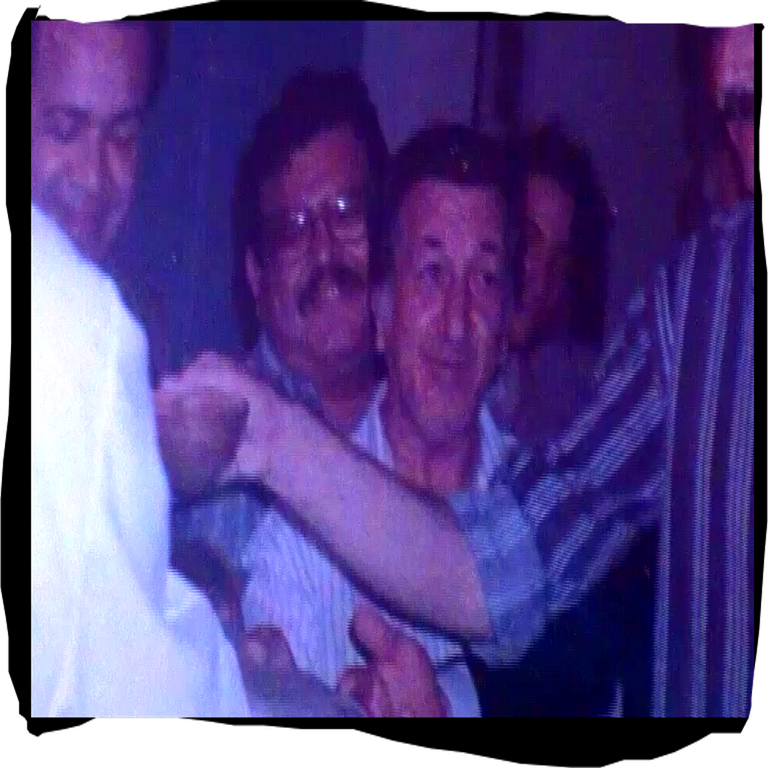
Esta fotografía pertenece a los archivos de la fundación teatro de títeres jau jau | Photograph is from the archives of the teatro de titeres jau jau foundation.
Ángel Romero fue un dedicado y preocupado promotor de cultura, su dedicación se multiplicó y dio sus frutos como presidente de la casa de la cultura María Cova Fernández, en Upata, fundó junto a cultores y autoridades del gobierno estadal, varias casas culturales por diferentes localidades del estado Bolívar.
Romerito asumió por los años 80, la recién creada dirección de cultura y deporte del distrito Caroní —ahora municipio— igualmente formó parte del primer equipo directivo de la Dirección de Cultura del Estado Bolívar.
Muchos artistas upatenses-y de otros municipios del estado— tuvieron en Ángel Romero, Romerito, un aliado y un apoyo firme, para sus proyectos y propuestas culturales.
Angel Romero was a dedicated and concerned promoter of culture, his dedication multiplied and bore fruit as president of the Maria Cova Fernandez House of Culture in Upata, he founded, together with cultural leaders and state government authorities, several cultural houses in different localities of Bolivar State.
Romerito assumed in the 80's, the recently created direction of culture and sports of the Caroní district -now municipality- he was also part of the first directive team of the Direction of Culture of the State of Bolivar.
Many artists from Upatán -and from other municipalities of the state- had in Angel Romero, Romerito, an ally and a firm support for their cultural projects and proposals.
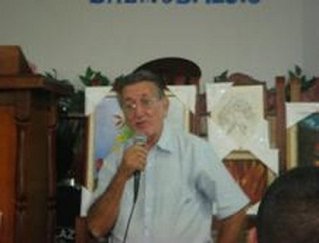
Ángel Romero Cabrera nace en marzo de 1935, en la ciudad de Caracas. Hijo de una familia trabajadora y emprendedora, como diríamos hoy día. Su madre, la abuela Emilia Cabrera de Romero, elaboraba varios tipos de comidas livianas como empanadas, tequeños, arepas; y artesanías diversas, que luego eran vendidas por él, junto con los hermanos mayores.
Le “tocó” ser limpia botas, aprendiz de boxeador, conoció el oficio de construir lápidas y lozas para tumbas, con sus tíos maternos; quienes trabajaron el cementerio general del sur de Caracas.
A los 19 años entra a trabajar como oficinista en él al banco de Venezuela y hace amistades con un grupo de amigos, quienes formaban parte de una especie de “peña cultural” y —según el propio Romerito— esos fueron sus inicios en el mundo de la cultura.
Luego llega a tierras del estado Bolívar-1966- y se coloca como maestro en una escuela primaria. Quedaba en un caserío del actual municipio Cedeño, llamado “Capachal”, allí conoció a Carmen Castillo, quien se convertirá en su esposa; en el 1968 se viene a Upata, donde nacen sus hijos Abel, Ivonne, Irania, Rigomar; Mariú y Virginia.
Como se reseña anteriormente en el año 1976-12 de octubre— asume la presidencia de la casa de la cultura María Cova Fernández.
En el año 2009 la cámara edilicia del municipio Piar, lo nombra cronista de la ciudad de Upata, y ejerce su tarea como investigador y cronista, hasta el día que decidió irse de este plano terrenal; el 11 de setiembre del 2018.
Ángel Romero Cabrera was born in March 1935, in the city of Caracas. He was the son of a hard-working and enterprising family, as we would say today. His mother, his grandmother Emilia Cabrera de Romero, made various types of light meals such as empanadas, tequeños, arepas, and various handicrafts, which were then sold by him, along with his older brothers.
He was a bootblack, apprentice boxer, and learned the trade of building tombstones and tombstones for tombs, with his maternal uncles, who worked in the general cemetery in the south of Caracas.
At the age of 19 he started working as a clerk in the bank of Venezuela and made friends with a group of friends, who were part of a kind of "cultural club" and -according to Romerito himself- those were his beginnings in the world of culture.
Then he arrived in the state of Bolivar -1966- and became a teacher in an elementary school. There he met Carmen Castillo, who became his wife; in 1968 he moved to Upata, where his children Abel, Ivonne, Irania, Rigomar, Mariú and Virginia were born.
As previously mentioned, in 1976 - October 12 - María Cova Fernández assumed the presidency of the House of Culture.
In 2009 the chamber of the municipality of Piar, named him chronicler of the city of Upata, and performs his task as a researcher and chronicler, until the day he decided to leave this earthly plane, on September 11, 2018.
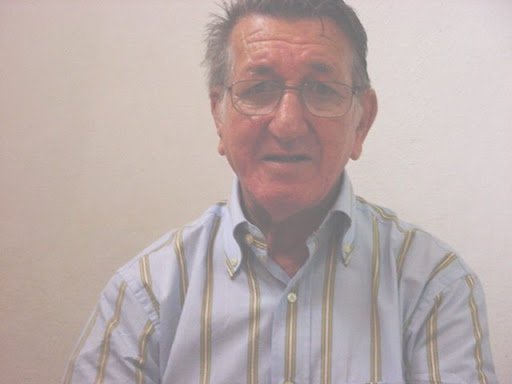
¡Honor a Ángel Romero, Romerito! | Honor to Angel Romero, Romerito!
Ahora me despido, deseando un nuevo encuentro a través de estas breves notas ¡Hasta pronto!
Now I say goodbye, wishing you a new meeting through these brief notes. See you soon!
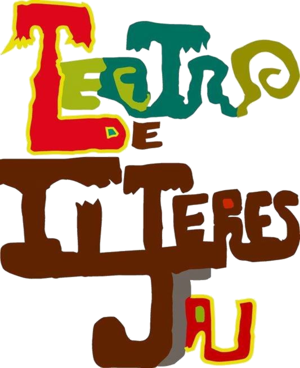


Muy bueno lo explayado, gracias por compartir, te sigo, saludos.